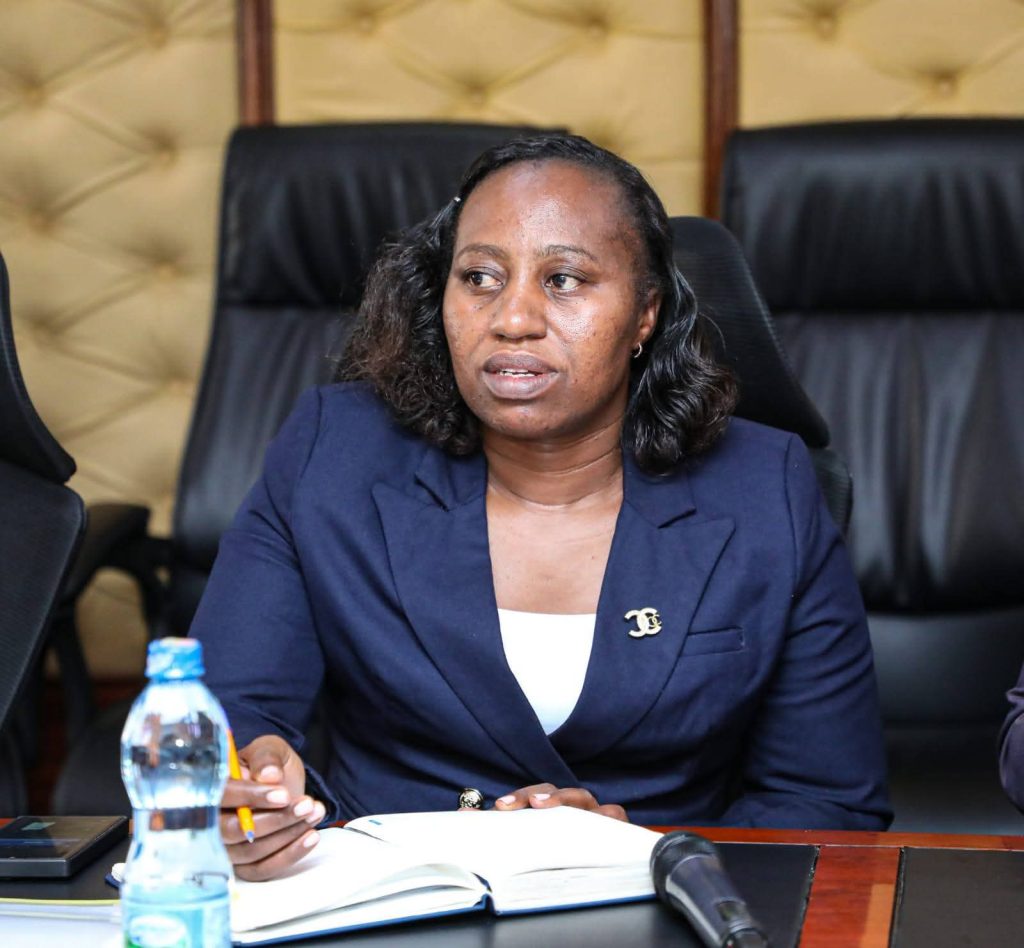Meru County Unveils Bold Plan to Double Revenue Through Streamlined Parking Fees and Strategic Partnerships
By Gerald Mukembu
In a sweeping initiative to turbocharge its revenue collection, the Meru County Government has rolled out a structured parking fee model targeting matatus and taxi operators, part of a broader ambition to more than double its annual revenue to Sh2 billion.

Meru County Finance CECM Monica Kathono
The county’s latest revenue innovation involves shifting seasonal parking fee responsibilities to SACCOs, allowing for collective remittance rather than individual payments. Finance and Economic Planning CECM Monica Kathono announced the plan during a consultative meeting with transport stakeholders, describing the move as a game-changer in enhancing efficiency and accountability.
“This approach is designed to streamline collection, cut administrative costs, and boost compliance. Our revenue from parking alone jumped from Sh16.3 million in August last year to Sh22.7 million this year. This new system will take us even further,” Kathono said.
The strategy is part of Governor Isaac Mutuma’s aggressive revenue transformation agenda, which has already seen Meru cross the Sh1 billion mark in own-source revenue for the first time in its history, collecting Sh1.15 billion in the 2024/25 financial year—up from Sh961 million the previous year.
To supercharge this growth, the county has partnered with Ecoapp Capital, a consultancy firm led by former Laikipia Governor Ndiritu Muriithi. The firm is conducting a comprehensive revenue diagnosis across departments to uncover untapped revenue sources and modernize existing systems.
“Enhancing own-source revenue is the most sustainable way to run county governments,” Governor Mutuma stated.
“Through Ecoapp Capital, we’re not just diagnosing gaps—we’re reimagining how we generate and manage our resources.”
The Agriculture, Livestock, and Fisheries sector is exploring charges for regulatory services, livestock permits, artificial insemination, and farm housing. Meanwhile, the Roads and Transport department is identifying underutilized paved areas for monetization, and the Trade and Tourism docket is eyeing boda boda SACCOs, tourism revival, and a metrology lab as new revenue streams.
Hospital payment systems have been digitized, improving efficiency, while revenue workers have been incentivized through better welfare packages, including a Sh40 million medical scheme. Still, Kathono acknowledges challenges persist, especially in streams that remain manual and prone to leakage.
“We’re working to eliminate all cash transactions in the county. Automating land rates, building plans, and liquor licensing will close critical loopholes,” she said.
With a full automation rollout and continued reforms, the county believes it can eventually hit its estimated revenue potential of Sh3.7 billion. Kathono also highlighted the untapped potential in healthcare revenue, projecting over Sh1.1 billion in possible collections with improved services and digitization.
A new monitoring team has also been launched to track revenue leaks and tax evasion, signaling the county’s resolve to curb waste and enforce accountability.
“We’re not just collecting more. We’re collecting smarter,” said Governor Mutuma.

